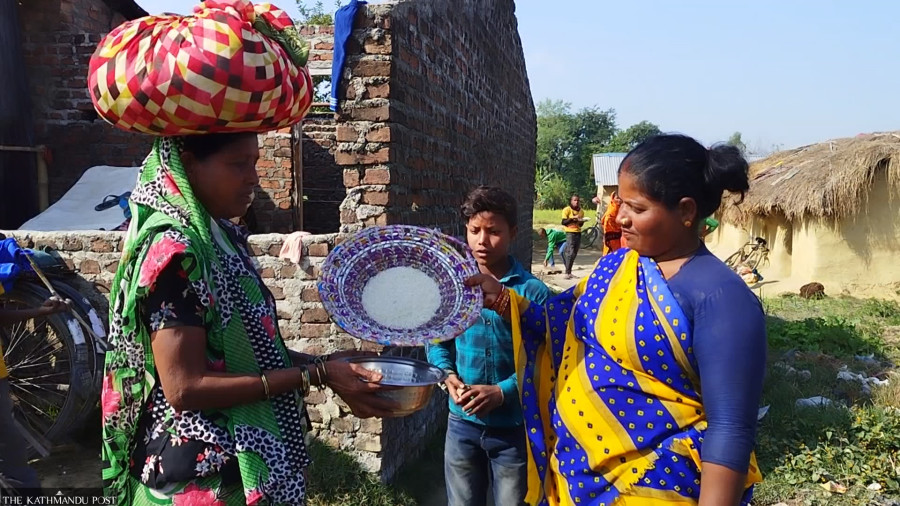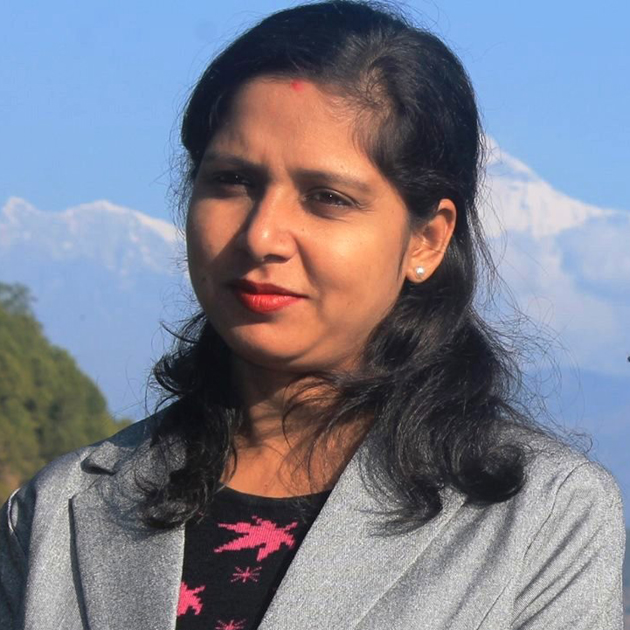National
Impoverished Netuwa community seeks recognition and rights as minority Dalit caste
The government provides a Rs4,000 monthly social security allowance to impoverished communities, but Netuwas are deprived of this benefit.
Amrita Anmol
Badrun Netuwa, a 45-year-old woman from Pragatinagar in ward 1 of Shuddhodhan Rural Municipality, Kapilvastu, has a family of nine.
Members of the Netuwa community live a semi-nomadic lifestyle; they are traditionally snake charmers and honey collectors. While the women mostly collect alms, the men hunt for mongoose, rats and mice for survival. People from this community are often referred to as Nat, Natuwa, Netuwa, and Netu in different geographies.
According to Badrun, 16 families from the Netuwa community in Pragatinagar have been living in huts built on public land for four generations.
“In the past, people would give us alms and respect, but these days it’s not so easy. We are mostly perceived as beggars and nothing more,” said Badrun. “Every day, during our begging rounds, we face insults, violence, and humiliation. We want to work, but people refuse to hire us even as farm hands or domestic helps. They believe that employing us to work in their fields and houses will bring them bad luck and result in decreased agricultural yield.”
Ramanugrah Netuwa is a 55-year-old man with 12 members in his family. He is a snake charmer and travels to rural areas to put on a show for the villagers. He says he earns Rs200-Rs 300 per show. “But sometimes I return empty-handed. Earlier, I used to earn way more and take good care of my family. But the government banned catching snakes so I can’t do shows in the cities,” he said. “I take my snakes to the villages in the hopes of earning some money.”
The new generation of the Netuwa community has given up their traditional ways. They earn money by dancing at weddings, but that too is only a seasonal job.
According to Dinesh Natuwa, a community leader from Lumbini Sanskritik Municipality, Rupandehi, due to a lack of property, skills, and employment, people from this community are forced to beg and suffer.
“After not getting even menial jobs in the locality, youths are forced to go far away for employment. Most of the youth these days go to India or other cities to work at construction sites,” said Dinesh. “I have been working in a local wedding band for a few years now, but I don’t earn enough to support my children’s education.”
Nepal is a country of many castes and communities. Among them, many minority and underprivileged castes and communities have brought their identity and culture to the mainstream. However, the Netuwa people of the Tarai region are still unrecognised.
The National Dalit Commission has listed Netuwa, or Natuwa, as a Dalit caste. The total population of Netuwas in the 2021 National Census was 2,896. This is 0.01 percent of the national population. The government of Nepal has listed the caste groups that are less than 0.5 percent of the total population as minority castes.
The government provides a Rs4,000 monthly social security allowance to communities that are doing far better than Netuwas, but they havebeen deprived of this benefit.

Prahalad Netuwa, a local of Pragatinagar, said that the majority of the people in this community don’t have a constant source of income or a permanent shelter, but they are yet to be listed as impoverished minorities.
“I went to Kathmandu to draw the authorities’ attention to our plight. I wanted to request them to include our community in the social security scheme given to the poor. Everyone from this community has their birth certificates and citizenship, but due to the absence of land, permanent occupation, and cultural identity, we have become wanderers,” said Prahalad. “We have 800 voters in the community, and in every election, leaders and people’s representatives come to us with big promises and commitments, but nobody shows up after the election.”
According to a book called Netuwa Jatiko Pherindo Samajik Jiwan by Sanjay Kumar Pasi, published by Martin Chautari, the people of the Netuwa community are often referred to as Natuwa, Nat, and Netu in different regions of Tarai according to geography and language. They speak Hindi and Awadhi (Indo-Aryan language spoken in the Awadh region of Uttar Pradesh). Netuwas, whose origins are believed to be north Indian, have members practising Hinduism and Islam.
The Netuwas living in Parsa, Saptari, and Siraha identify themselves as Muslims while those living in Siraha to West Kanchanpur identify themselves as Hindus.
Anil Netuwa, a leader from Lumbini Sanskritik Municipality, said that the majority of the people in this community are uneducated, and due to financial difficulties their children also remain out of school.
“Most of the parents are busy begging and earning to be able to provide at least one meal a day to their children. The children hardly go to school. Even the few that join school drop out and start begging for alms on the streets because their financial situation is so dire. If the government recognised us as a minority caste and gave us an allowance, young people could go to school and become skilled,” said Anil.




 18.12°C Kathmandu
18.12°C Kathmandu














